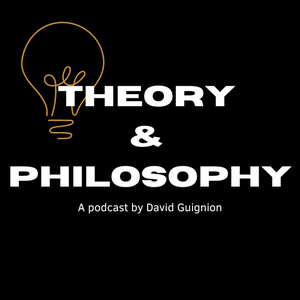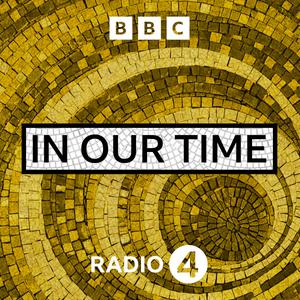
New Books in Music
Interviews with Scholars of Music about their New Books
- 1 hour 7 minutesMonica A. Hershberger, "Women in American Operas of The 1950s: Undoing Gendered Archetypes" (U Rochester Press, 2023)
The 1950s looks placid from the outside, but underneath that calm post-war exterior roiled the intellectual and activist beginnings of the political movements that tore through the 1960s and 1970s. In Women in American Operas of the 1950s: Undoing Gendered Archetypes (University of Rochester Press, 2023), Monica A. Hershberger considers the main female characters in four operas written in the 1950s: The Ballad of Baby Doe, Lizzie Borden, The Tender Land, and Susannah. For each work, Hershberger analyzes the historical context and musical treatment of these four characters, who are all stereotyped as the virgin or the whore, or sometimes even both. In an unusual and productive analytical choice, Hershberger also includes the interpretive decisions and perspectives of the sopranos who originated or popularized these four roles, rather than focusing exclusively on the scores and the views of the male creative teams that wrote the works. Several of the operas include instances of emotional abuse as well as gendered and sexual violence that have long been ignored or downplayed by opera scholars, but Hershberger does not shy away from these disturbing subjects in the book.
Learn more about your ad choices. Visit megaphone.fm/adchoices
Support our show by becoming a premium member! https://newbooksnetwork.supportingcast.fm/music
20 January 2025, 9:00 am - 1 hour 45 secondsLily E. Hirsch, "Taking Funny Music Seriously" (Indiana UP, 2024)
Take funny music seriously! Though often dismissed as silly or derivative, funny music, Lily E. Hirsch argues, is incredibly creative and dynamic, serving multiple aims from the celebratory to the rebellious, the entertaining to the mentally uplifting.
Music can be a rich site for humor, with so many opportunities that are ripe for a comedic left turn. Taking Funny Music Seriously (Indiana UP, 2024) includes original interviews with some of the best musical humorists, such as Tom Lehrer, "the J. D. Salinger of musical satire"; Peter Schickele, who performed as the invented composer P. D. Q. Bach, the supposed lost son of the great J. S. Bach; Kate Micucci and Riki Lindhome of the funny music duo Garfunkel and Oates; comedic film composer Theodore Shapiro; Too Slim of the country group Riders in the Sky; and musical comedian Jessica McKenna, from the podcast Off Book, part of a long line of "funny girls." With their help, Taking Funny Music Seriously examines comedy from a variety of genres and musical contexts--from bad singing to rap, classical music to country, Broadway music to film music, and even love songs and songs about death.
In its coverage of comedic musical media, Taking Funny Music Seriously is an accessible and lively look at funny music. It offers us a chance to appreciate more fully the joke in music and the benefits of getting that joke--especially in times of crisis--including comfort, catharsis, and connection.
Lily E. Hirsch is a musicologist and author most recently of Can't Stop the Grrrls: Confronting Sexist Labels in Music from Ariana Grande to Yoko Ono; Weird Al: Seriously; and Insulting Music: A Lexicon of Insult in Music.
Bradley Morgan is a media arts professional in Chicago and author of U2's The Joshua Tree: Planting Roots in Mythic America. He manages partnerships on behalf of CHIRP Radio 107.1 FM and is the director of its music film festival. His forthcoming books are Frank Zappa's America (Louisiana State University Press, June 2025) and U2: Until the End of the World (Palazzo Editions, Fall 2025).
Bradley on Twitter and Bluesky.
Learn more about your ad choices. Visit megaphone.fm/adchoices
Support our show by becoming a premium member! https://newbooksnetwork.supportingcast.fm/music
17 January 2025, 9:00 am - 46 minutes 50 secondsIn One Ear, Out The Other
On today’s show, we address a performer’s nightmare—the nightmare of not being able to hear yourself onstage. My guest is ethnomusicologist Jacob Danson Faraday, who takes us behind the scenes of the famed Cirque du Soleil to learn how even Cirque’s world-class musicians struggle with technology when they want to hear themselves.
Building on his international career as a touring sound technician, ethnomusicologist Jacob Danson Faraday researches the working communities and hidden labor of live sound technicians on large-scale touring productions. He is a recent graduate of the PhD program in ethnomusicology at Memorial University of Newfoundland. Today Jake takes us behind the scenes of Cirque du Soleil, sharing his dissertation research on how sound engineers and musicians negotiate the power to hear oneself.
Stage monitoring, the technology that allows musicians to hear the performance as they play, is a topic we rarely hear about, but it’s absolutely essential to performers. Faraday suggests that, while new in-ear monitors are marketed as a godsend for performers, they are more of a mixed blessing, “homogenizing listening” and creating new kinds of issues and anxieties for musicians.
Today’s show was edited and mixed by Jacob Danson Faraday, with additional editing by Mack Hagood.
The song “Sail Away” by Colton Benjamin (2017) was obtained from the Free Multitrack Download Library on the Cambridge Music Technology website by Mike Senior, author of the excellent book Mixing Secrets For The Small Studio.
Read the dissertation: Buried in the mix: touring sound technicians, sonic control, and emotional labour on Cirque du Soleil’s Corteo by Jacob Danson Faraday (2021).
Learn more about your ad choices. Visit megaphone.fm/adchoices
Support our show by becoming a premium member! https://newbooksnetwork.supportingcast.fm/music
6 January 2025, 9:00 am - 1 hour 12 minutesI. Augustus Durham, "Stay Black and Die: On Melancholy and Genius" (Duke UP, 2023)
In Stay Black and Die: On Melancholy and Genius (Duke UP, 2023), I. Augustus Durham examines melancholy and genius in black culture, letters, and media from the nineteenth century to the contemporary moment. Drawing on psychoanalysis, affect theory, and black studies, Durham explores the black mother as both a lost object and a found subject often obscured when constituting a cultural legacy of genius across history. He analyzes the works of Frederick Douglass, Ralph Ellison, Marvin Gaye, Octavia E. Butler, and Kendrick Lamar to show how black cultural practices and aesthetics abstract and reveal the lost mother through performance. Whether attributing Douglass’s intellect to his matrilineage, reading Gaye’s falsetto singing voice as a move to interpolate black female vocality, or examining the women in Ellison’s life who encouraged his aesthetic interests, Durham demonstrates that melancholy becomes the catalyst for genius and genius in turn is a signifier of the maternal. Using psychoanalysis to develop a theory of racial melancholy while “playing” with affect theory to investigate racial aesthetics, Durham theorizes the role of the feminine, especially the black maternal, in the production of black masculinist genius.
Learn more about your ad choices. Visit megaphone.fm/adchoices
Support our show by becoming a premium member! https://newbooksnetwork.supportingcast.fm/music
2 January 2025, 9:00 am - 1 hour 20 minutesFela Kuti and the Black Atlantic
This summer, sound artist and “guerrilla academic” Ben Coleman got in touch to say how much he enjoys Phantom Power. He also suggested we check out another podcast he’s into called Love is the Message.
We’re glad we did! Love is the Message: Music, Dance & Counterculture is a fantastic show from Tim Lawrence and Jeremy Gilbert, both of them authors, academics, DJs and audiophile dance party organisers. I recognized Tim Lawrence’s name from his great book on Arthur Russell. Jeremy Gilbert is Professor of Cultural and Political Theory at the University of East London and a prolific author. Tim and Jeremy have been longtime collaborators and when the clubs closed and universities cut faculty hours due to covid, they started podcasting.
The way I’d describe their show is, imagine the amazing college class you never got to take where you learn about the intersections of global dance music and radical politics, from the 1960s to today. They do shows on disco, Motown, reggae, tropicalia, funk, you name it with a strong cultural studies perspective. And I think the episode we’re going to hear today is a perfect example of their approach—it’s ostensibly an episode about Fela Kuti, but it’s also terrific seminar on the Black Atlantic and the political history of Nigeria.
So thanks, Ben, for the recommendation. Thanks, Tim and Jem for sharing the pod with me and doing this episode swap. And thanks everyone for listening. Talk next month!
Learn more about your ad choices. Visit megaphone.fm/adchoices
Support our show by becoming a premium member! https://newbooksnetwork.supportingcast.fm/music
30 December 2024, 9:00 am - 1 hour 15 minutesAndrew David Field, "Rocking China: Music Scenes in Beijing and Beyond" (Earnshaw Books, 2023)
Andrew Field, in his new book Rocking China (Earnshaw Books, 2023), documents one of the most exciting moments in the history of Chinese indie music. Through interviews with key players in these scenes over a period of two decades, Field explores the meanings of rock music in Chinese society as well as the many challenges and obstacles to the development of indie rock scenes in China. Highlights include a journey by rail into the heartlands of China with the hardcore rock band SUBS and legendary “rock godfather” Cui Jian. Along the journey to document the live rock music scenes of Beijing, he discovered an emerging world of musicians, bands, clubs, festivals, promoters, record shop and record label owners that were pushing the envelope of indie music for China and the world. This book takes the reader deep into the world of independent rock music that has been flourishing in urban China since the 2000s.
Andrew Field is an American historian, documentary film producer, and professor at Duke Kunshan University. Based in Shanghai, Field is a scholar of musical history and creative culture in contemporary China, including the role jazz music played in 20th century Shanghai. He is the author of Mu Shiying: China’s Lost Modernist (2014) and Shanghai’s Dancing World: Cabaret Culture and Urban Politics (2010), and one of the co-authors of Shanghai Nightscapes: A Nocturnal Biography of a Global City (2015).
Yadong Li is a PhD student in anthropology at Tulane University. His research interests lie at the intersection of economic anthropology, medical anthropology, hope studies, and the anthropology of borders and frontiers. More details about his scholarship and research interests can be found here.
Learn more about your ad choices. Visit megaphone.fm/adchoices
Support our show by becoming a premium member! https://newbooksnetwork.supportingcast.fm/music
27 December 2024, 9:00 am - 40 minutes 49 secondsJohny Brown, "Corpse Flower" (Skill, 2024)
From the frontman of Band of Holy Joy, Johny Brown, Corpse Flower (Skill, 2024), is a long-form prose poem that shares Brown's journey through one of the most challenging times in his life. Released as a multimedia project, Corpse Flower includes not only Brown's book but the music and reading that goes along with it. Moving from dark to light and ending in hope and joy, Brown's work shares with readers his world in lyrical verse.
Learn more about your ad choices. Visit megaphone.fm/adchoices
Support our show by becoming a premium member! https://newbooksnetwork.supportingcast.fm/music
25 December 2024, 9:00 am - 54 minutes 43 secondsAwfully Viral
It’s summer and we are busy working on episodes for our fourth season. We’ve also rebuilt our website–check out the the fabulous new phantompod.org. There’s other great stuff in store for the podcast, so stay tuned!
But today, I want to share one of my favorite podcasts with you: Will Robin’s Sound Expertise. For those of you into musicology or popular music studies, there’s a great chance you’re already a subscribe. That’s because Will’s show is fantastic and I personally know many music scholars who are devoted fans of this show that features conversations with established and up-and-coming music scholars. For those of you who aren’t familiar with Dr. Robin, you might remember that I quoted his New York Times obituary of R. Murray Schafer in our first episode on Schafer. He has written about music for the Times for at least a decade. He’s also an assistant professor of Musicology at the University of Maryland and the author of the book Industry: Bang on a Can and New Music. Sound Expertise will be dropping its third season in the fall.
The episode you are about to hear is one that I love as a media scholar. Will Robin interviews Dr. Paula Harper about her work on viral music videos and taste, specifically that terrible Rebecca Black video “Friday” that’s probably still rattling around in some dark recess of your brain. Dr. Harper digs into the awful virality of that video and all of its cover versions, discerning what this case study can tell us about genre, gender, and how and why sound travels on the internet. It’s a great discussion and I hope you enjoy it. And by the way, since this interview happened, Paula Harper has joined the faculty of the University of Chicago as an assistant professor of music. So, who says YouTube rots your brain?
Learn more about your ad choices. Visit megaphone.fm/adchoices
Support our show by becoming a premium member! https://newbooksnetwork.supportingcast.fm/music
23 December 2024, 9:00 am - 21 minutes 52 secondsToby Manning, "Mixing Pop and Politics: A Marxist History of Popular Music" (Repeater, 2024)
From rock & roll to contemporary pop, Mixing Pop and Politics: A Marxist History of Popular Music (Repeater, 2024) is a timely and original exploration of popular music’s role in shaping our society. Told through a Marxist lens, Toby Manning traces the last seventy years of political and social upheavals through its most iconic US and UK-based music.
Mixing Pop and Politics examines the connections between popular music and political ideology and explores themes like the liberation of rock ’n’ roll, containment of girl groups, defiance of glam, resignation of soft rock, the communal spirit of disco, and the individualism of 1980s pop. Spanning the early 1950s to today, the book reveals how music—from doo-wop to hip-hop, punk to crunk, and grunge to grime—has both reflected and resisted the political forces of its time.
Toby Manning is the author of The Rough Guide to Pink Floyd (2006) and John le Carré and the Cold War (2018).
Learn more about your ad choices. Visit megaphone.fm/adchoices
Support our show by becoming a premium member! https://newbooksnetwork.supportingcast.fm/music
13 December 2024, 9:00 am - 1 hour 2 minutesLeah Kardos, "Kate Bush's Hounds of Love" (Bloomsbury, 2024)
Hounds Of Love invites you to not only listen, but to cross the boundaries of sensory experience into realms of imagination and possibility. Side A spawned four Top 40 hit singles in the UK, 'Running Up That Hill (A Deal with God)', 'Cloudbusting', 'Hounds of Love' and 'The Big Sky', some of the best-loved and most enduring compositions in Bush's catalogue. On side B, a hallucinatory seven-part song cycle called The Ninth Wave broke away from the pop conventions of the era by using strange and vivid production techniques that plunge the listener into the psychological centre of a near-death experience. Poised and accessible, yet still experimental and complex, with Hounds Of Love Bush mastered the art of her studio-based songcraft, finally achieving full control of her creative process. When it came out in 1985, she was only 27 years old.
Kate Bush’s Hounds of Love (Bloomsbury, 2024) charts the emergence of Kate Bush in the early-to-mid-1980s as a courageous experimentalist, a singularly expressive recording artist and a visionary music producer. Track-by-track commentaries focus on the experience of the album from the listener's point of view, drawing attention to the art and craft of Bush's songwriting, production and sound design. It considers the vast impact and influence that Hounds Of Love has had on music cultures and creative practices through the years, underlining the artist's importance as a barrier-smashing, template-defying, business-smart, record-breaking, never-compromising role model for artists everywhere.
Leah Kardos is a senior lecturer in music at Kingston University London, UK. She is the author of Blackstar Theory: The Last Works of David Bowie (Bloomsbury, 2022), which was included as one of The Wire's 'Best Books of 2022'.
Leah on Twitter.
Bradley Morgan is a media arts professional in Chicago and author of U2's The Joshua Tree: Planting Roots in Mythic America. He manages partnerships on behalf of CHIRP Radio 107.1 FM and is the director of its music film festival. His forthcoming books are Frank Zappa's America (Louisiana State University Press, June 2025) and U2: Until the End of the World (Palazzo Editions, Fall 2025).
Bradley on Twitter.
Learn more about your ad choices. Visit megaphone.fm/adchoices
Support our show by becoming a premium member! https://newbooksnetwork.supportingcast.fm/music
11 December 2024, 9:00 am - 44 minutes 39 secondsKathleen A. Abromeit and Dyani Sabin, "Music Information Literacy: Inclusion and Advocacy" (Library Juice Press, 2024)
Becoming a more equitable librarian is an ongoing process. In the face of the last decade’s events and increased public awareness of issues of diversity, equity, inclusion, and accessibility (DEIA), library workers in music libraries can do things to create the space in our teaching for optimal creativity and connection by and with our library users. As the editors of Music Information Literacy: Inclusion and Advocacy (Library Juice Press, 2024), Kathleen A. Abromeit and Dyani Sabin bring together contributions that imagine what it would be like to expand our inclusion structures so that we increasingly recognize and accommodate differences in our music libraries.
The ways librarians teach and assist students must change to amplify the voices of those who have been traditionally marginalized and create effective and equitable libraries and classrooms. Doing so is a multi-part process, where critical information literacy overlaps with self-reflection as a librarian and a deep understanding that our students have identities and experiences that influence how they navigate their world. Many of our students have experienced trauma from the generational oppression of systemic racism, gender fluidity, invisible disabilities, discrimination, or poverty. Ongoing trauma triggers toxic stress that can rewire parts of the brain and impact one’s ability to process information, formulate questions, and feel safe enough to be creative and in the zone of ideas. The chapters in the volume are authored by librarians who have actively been learning and self-reflecting on what is needed to invite users into their libraries and teaching spaces fully. The book is divided into three sections: Critical Theories, Concepts, & Reflections, Bringing Underrepresentation to the Forefront, and Supporting Activism. Each chapter includes case studies and discussion questions supporting ideas and concepts. A sample reading guide for each chapter is included as well.
Kathleen A. Abromeit is the Head of the Conservatory Library at Oberlin College and Conservatory, and Dyani Sabin is a writer based in the Midwest.
Jen Hoyer is Technical Services and Electronic Resources Librarian at CUNY New York City College of Technology. She is co-author of What Primary Sources Teach: Lessons for Every Classroom and The Social Movement Archive.
Learn more about your ad choices. Visit megaphone.fm/adchoices
Support our show by becoming a premium member! https://newbooksnetwork.supportingcast.fm/music
11 December 2024, 9:00 am - More Episodes? Get the App
Your feedback is valuable to us. Should you encounter any bugs, glitches, lack of functionality or other problems, please email us on [email protected] or join Moon.FM Telegram Group where you can talk directly to the dev team who are happy to answer any queries.
 The Daily
The Daily
 Theory & Philosophy
Theory & Philosophy
 The Ezra Klein Show
The Ezra Klein Show
 If Books Could Kill
If Books Could Kill
 Q with Tom Power
Q with Tom Power
 In Our Time
In Our Time